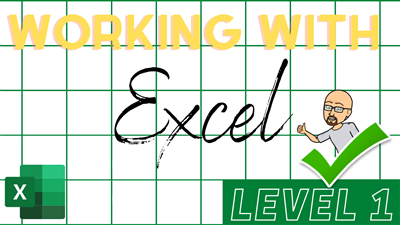
Top Online SQL Server Courses: Learn SQL Server at Your Own Pace
Learn SQL Server Online: Best Courses to Master SQL Server
SQL Server is a powerful relational database management system (RDBMS) developed by Microsoft, widely used by businesses and organizations to manage and store their data. Whether you’re a database administrator, developer, or data analyst, mastering SQL Server is a valuable skill that can significantly enhance your career prospects. With the right online course, you can learn SQL Server at your own pace, from the basics to advanced concepts, and gain the expertise needed to manage databases effectively. In this guide, we’ll explore some of the best online SQL Server courses available, helping you choose the right one for your learning goals.
Why Learn SQL Server?
SQL Server is integral to many enterprise-level applications and systems. It is known for its robust performance, scalability, and security features, making it a preferred choice for managing large volumes of data. By learning SQL Server, you open doors to various career opportunities, including database administration, SQL development, and data analysis. Proficiency in SQL Server is also crucial for optimizing database performance, ensuring data security, and developing complex queries and stored procedures.
What to Look for in an Online SQL Server Course
When choosing an online SQL Server course, it’s important to consider several factors to ensure you’re getting a comprehensive and practical learning experience. Here are some key features to look for:
Comprehensive Curriculum
Foundational Topics: A good SQL Server course should start with the basics, covering essential topics such as database design, SQL syntax, creating and managing databases, and performing CRUD (Create, Read, Update, Delete) operations. These foundational topics are crucial for beginners who need to build a solid understanding of SQL Server.
Advanced Concepts: For more experienced learners, the course should delve into advanced topics such as indexing, joins, subqueries, transactions, and performance tuning. Understanding these advanced concepts is essential for optimizing SQL Server performance and managing large-scale databases.
Real-World Applications: The best courses include real-world examples and projects that allow you to apply what you’ve learned in practical scenarios. This hands-on approach helps reinforce your learning and gives you the confidence to use SQL Server in real-life situations.
Experienced Instructors
Expertise: Look for courses taught by instructors with extensive experience in database management and SQL Server. These instructors should have a deep understanding of the subject matter and be able to explain complex concepts in a clear and accessible manner.
Engaging Teaching Style: An instructor’s ability to present material in an engaging and understandable way is crucial for your learning experience. The best instructors use examples, analogies, and interactive elements to make the learning process enjoyable and effective.
Hands-On Practice and Projects
Interactive Exercises: SQL Server is a practical skill, and the best way to learn it is through hands-on practice. Look for courses that include interactive exercises, coding challenges, and SQL queries that you can run and test in a live environment.
Real Databases: Some courses provide access to actual databases or simulate real-world data scenarios, allowing you to gain practical experience. This hands-on approach is essential for building confidence in your SQL Server skills.
Flexible Learning Options
Self-Paced Learning: Many online SQL Server courses offer self-paced learning options, allowing you to study at your own convenience. This flexibility is ideal for those who need to balance their studies with other commitments, such as work or family.
Modular Content: Courses that are divided into modules or sections make it easier to focus on specific topics at a time. This structure helps you digest the material more effectively and track your progress as you learn.
Assessments and Feedback
Quizzes and Tests: Regular assessments throughout the course can help reinforce your learning and ensure that you understand the material before moving on to more advanced topics. Quizzes, tests, and coding challenges are valuable tools for measuring your progress.
Instructor Feedback: Some courses offer opportunities for direct feedback from instructors, which can be invaluable for correcting mistakes and improving your understanding of the material.
Certification
Recognized Credentials: Many SQL Server courses offer a certificate of completion, which can be a valuable addition to your resume. Employers often look for certified professionals who have demonstrated their expertise in SQL Server.
Industry Recognition: Courses offered by reputable platforms, such as Coursera, Udemy, or LinkedIn Learning, often carry more weight with employers, especially if the course is part of a recognized certification program.
Up-to-Date Content
Current Best Practices: The technology landscape is constantly evolving, and it’s important to choose a course that is regularly updated to reflect the latest developments in SQL Server. Look for courses that incorporate the most current best practices, tools, and techniques.
Ongoing Updates: Some platforms offer ongoing updates to course content, ensuring that you’re always learning the latest information and skills.
Conclusion
Learning SQL Server can significantly enhance your career in data management, development, or analysis. With the right online course, you can master this powerful RDBMS at your own pace and gain the skills needed to excel in your field. When selecting a course, look for one that offers comprehensive content, hands-on practice, and flexible learning options. By choosing a course with these features, you’ll be well-prepared to apply your SQL Server knowledge in real-world situations and advance your career
















